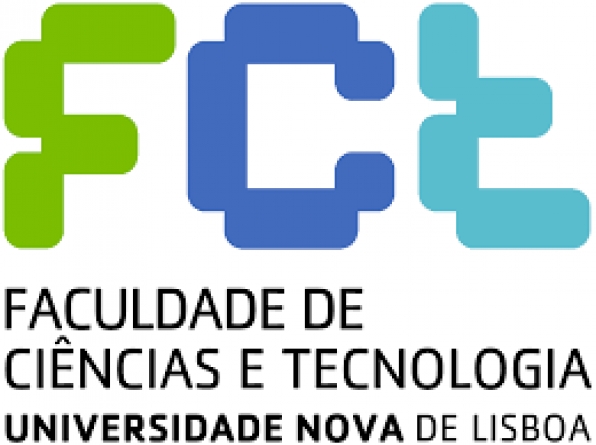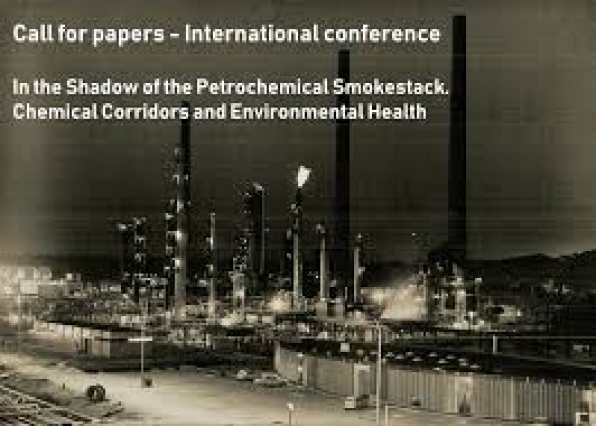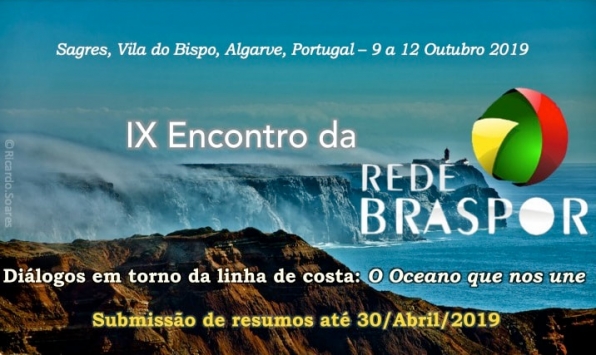Call for Papers
Workshop Resources, Infrastructures and the Anthropocene: Dialogues between the Global-North and the Global-South Caparica Campus, Faculdade de Ciências e Tecnologia da Universidade NOVA de Lisboa, Portugal 18 - 20 September 2019
We welcome proposals for participation in the workshop Resources, Infrastructures and the Anthropocene: Dialogues between the Global-North and the Global-South, which will take place at Caparica Campus, Faculdade de Ciências e Tecnologia da Universidade NOVA de Lisboa, Portugal, between September 18 and 20, 2019.
Global resources and resource infrastructure play a significant role in modern societies; through a variety of ambivalent historical processes, they have come to entangle—and (re)produce tensions between and within—countries in the Global South and the Global North. In recent years discourses on geopolitical and domestic competition for natural resources have further intensified. So have associated concerns on resource security and circularity, socioecological vulnerabilities and inequalities, and a host of other issues. How could and should we (re)think and (re)write our global histories of resources and resource infrastructure in the age of the ‘Anthropocene’?
The workshop explores this question for two related topics:
· Resource Spaces in the Global South: Engineering Landscapes and Mindscapes;
· Globally Entangled Resource Chains and Socioecological Change: Sustainability and Global Justice in the Anthropocene.
In particular, we aim to mobilise research approaches and historical cases that help scrutinize/problematize these issues from Global South and South-North entanglement perspectives. The workshop will be based on a variety of empirical case studies, intellectual viewpoints, methodologies and literatures, and will focus on questions such as the following:
· Which assumptions, knowledges, and methodologies are used in the analysis of relations between the so called “Global North” and “Global South” regarding natural resources, infrastructures, and their environmental, social, economic and political implications? Which assumptions are shared, and which are not, when approaching our case studies? Do we have different notions and narratives about important keywords such as “progress”, “development”, “nature”, “human agency”, “sustainability”, resource “scarcity” and “security”?
· Which methodologies, research directions and questions are innovative, relevant and needed in current and future projects on the workshop topics? How can we encourage and help initiate and facilitate future research in these directions and questions? Which opportunities can we develop to increase productive cooperation of scholars in the Global South and Global North in research on global resources, infrastructures and their environmental, social and economic impacts?
Workshop setup
The workshop will be designed to maximize dialogue and discussion and not consist of traditional presentations by all participants. Position papers by invited scholars coming from Africa, Asia, Europe and South America and focused short pitches by the other participants will serve to spark discussions in different work formats.
Participants are expected to engage in the discussion of the main topics either by bringing intellectual view points and/or presenting empirical examples. The size of the workshop is limited to approximately 30 people, in order to allow for the exchange of ideas and the development of concrete future directions of research and collaborations.
Upon acceptance, all participants will receive further instructions and be asked to provide short preparatory texts of about 2 pages before the end of August.
Travel and accommodation arrangements
Travel and accommodation costs will be fully funded. Further information will be given upon acceptance.
How to apply
Please send a motivation letter (max. 1 page) on your interest in the topics of the workshop and how it relates to your research and a short bio note (1 page) to This email address is being protected from spambots. You need JavaScript enabled to view it. before June 7, 2019, with the subject “Application to Lisbon resources workshop”. Applicants will be informed by June 20 of the result.
Organisation
The agenda and framing of the workshop reflect the three supporting research projects agendas:
- "Anthropolands - Engineering the Anthropocene: The role of colonial Science, Technology and Medicine on changing of the African landscape", coordinated by Maria Paula Diogo. The goal of this project is to contribute to the international debate and scholarship on the theme of the Anthropocene from the perspective of the History of Science, Technology and Medicine, focusing on the case of the former Portuguese colonial African empire.
- “EurReS - Challenging Europe: Technology, Environment and the Quest for Resource Security”, coordinated by Matthias Heymann and “GREASE - Global Resources and Sustainability of European Modernization, 1820-2020”, coordinated by Erik van der Vleuten.
The goal of these two projects is to develop international networks for historical research on societal challenges related to natural resources, including contested issues such as global sustainability entanglements, security regimes, socioecological inequalities, governance, and so on. These projects collaborate, and are embedded in, the explorative research program "Technologies, Environment and Resources" of the Tensions of Europe research network.
The organising team
Maria Paula Diogo, CIUHCT, FCT, NOVA University of Lisbon
M. Luísa Sousa, CIUHCT, FCT, NOVA University of Lisbon
Matthias Heymann, Aarhus University
Erik van der Vleuten, Eindhoven University of Technology
Frank Veraart, Eindhoven University of Technology








